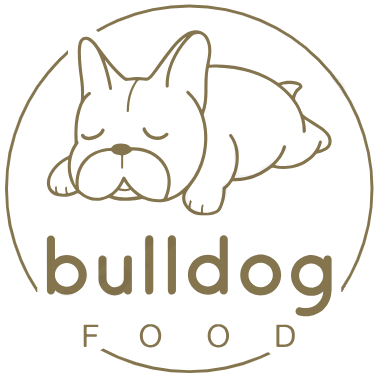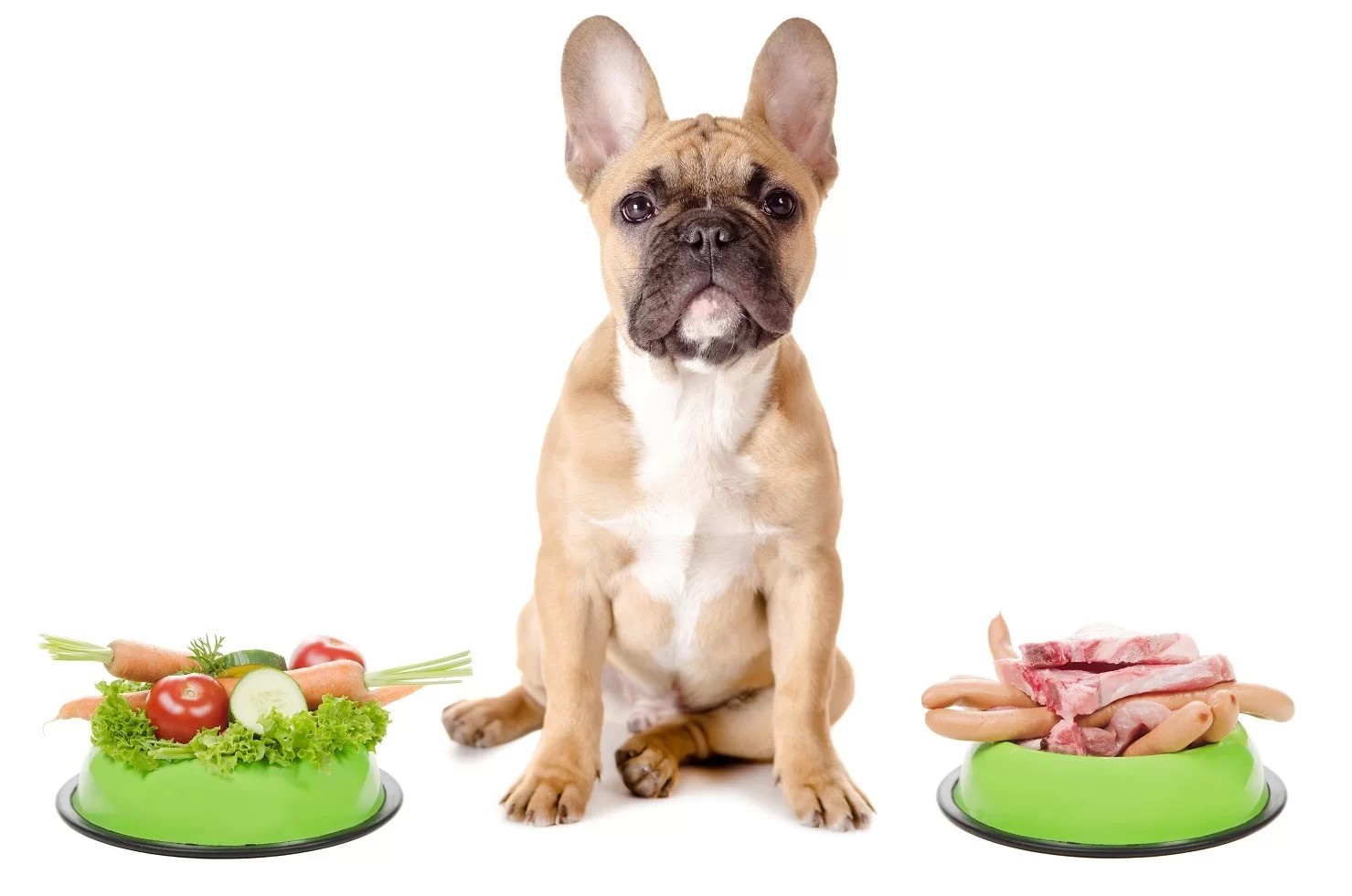“What can French Bulldogs eat?” is a question every Frenchie face. We understand how much you adore your furry friend and want to share your food, especially when they look at you with those pleading eyes!
However, not all human foods are suitable for French Bulldogs. In this detailed article, we will outline which human foods are safe to share with your dog and which ones can be harmful. Continue reading to ensure your pet stays happy and healthy!
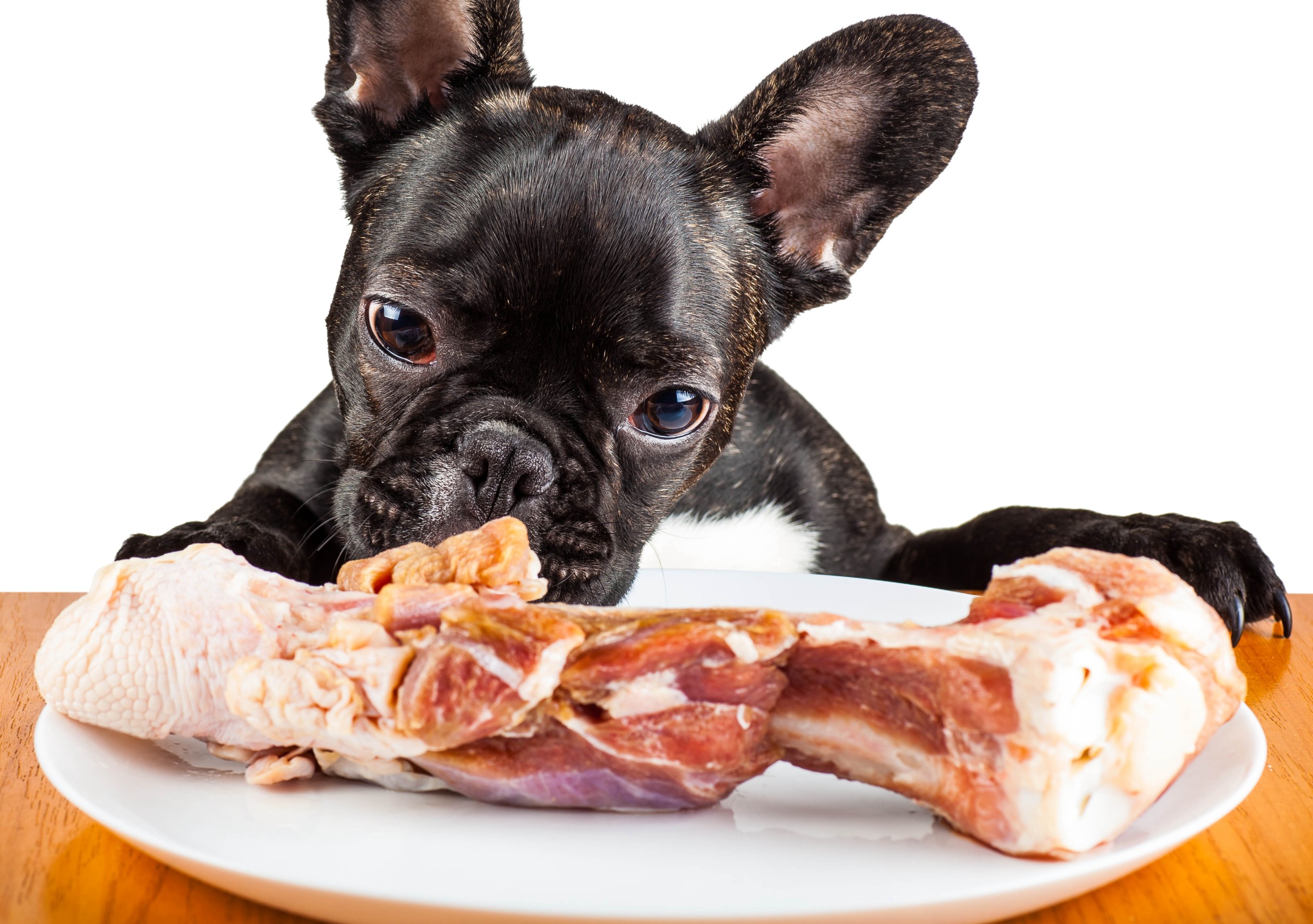
Foods French Bulldogs Can Eat in Moderation
Sharing delicious human foods with your dog can be a delightful way to bond—but it’s important to select the right options. Our team consulted veterinary experts and put together a list of human foods that dogs can safely eat in moderation.
Fruits
While fruits shouldn’t dominate a French Bulldog’s diet, some natural, juicy varieties can be healthy, low-calorie treats. Suitable fruit options for Frenchies include:
- Apples: Rich in fiber and vitamins, apples provide a crunchy, hydrating snack. Just remember to remove the seeds and core, as they pose a choking risk. In our home, we give our dogs no more than a thin slice or two at a time.
- Bananas: Full of potassium, bananas are incorporated in many high-quality commercial foods for French Bulldogs as a nutrient powerhouse. It’s an excellent addition to your Frenchie’s diet. Our dogs enjoy it when we mash up a small piece or slice a round or two for an easy-to-eat snack.
- Blueberries: These antioxidant-packed berries are small and enjoyable for Frenchies to munch on. You can offer a handful as a training treat or mix them into your dog’s regular meals.
- Watermelon: With its high water content, watermelon is a refreshing option, especially on warm days. Be sure to remove all seeds and rinds before serving, and stick to just a few bite-sized pieces.
Having trouble introducing new fruits to your Frenchie? Here’s a helpful tip: Start with a small taste and monitor for any digestive issues. Generally, always choose fresh, unsweetened, and unsalted fruits—avoid canned, preserved, or sugary varieties!
Vegetables
Vegetables can be excellent, low-calorie additions to your French Bulldog’s diet. Always serve them cooked (never raw) and without any butter, oil, or seasonings.
Here are some great vegetable options for your furry companions:
- Sweet potatoes: These are high in fiber, vitamins, and minerals, making them a healthy choice for Frenchies. Our nutritionist recommends steaming or baking them until tender, then mashing or cutting them into small pieces.
- Green beans: These crunchy vegetables are packed with essential nutrients. You can lightly steam or boil plain green beans and slice them into small, easy-to-eat pieces.
- Carrots: Rich in beta-carotene, carrots can serve as a crunchy, tooth-cleaning snack when raw and cut into small sticks. They can also be steamed or boiled until soft.
- Peas: Whether fresh or frozen, peas are a delicious, bite-sized treat that many French Bulldogs love. Just make sure to serve them plain, without any butter or seasoning.
Limit the addition of cooked vegetables to just one or two tablespoons as an occasional supplement to your dog’s regular meals. Vegetables should not constitute more than 10% of a French Bulldog’s total calorie intake.
Lean Proteins
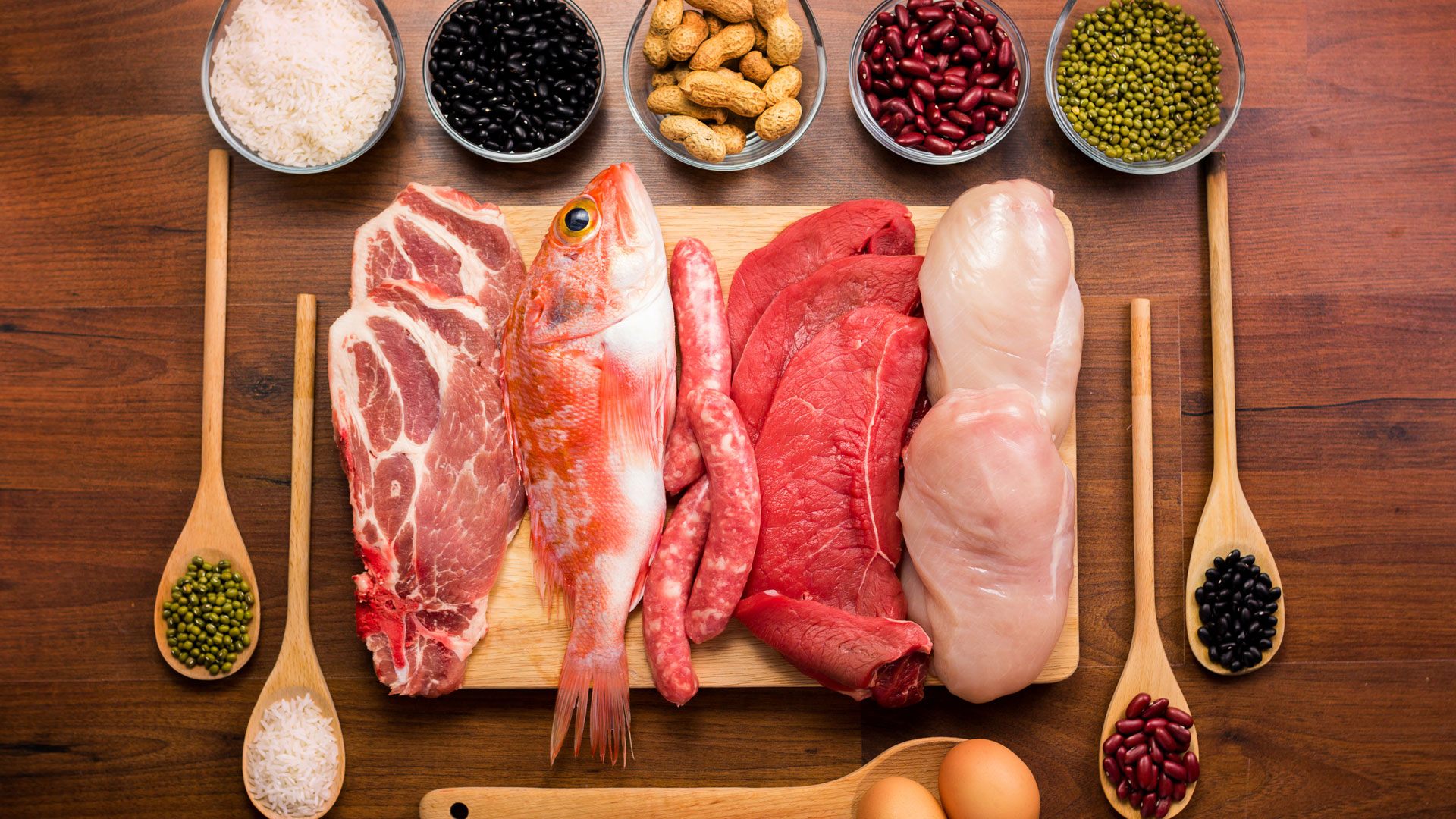
French Bulldogs need a diet that includes high-quality animal proteins to maintain their muscle, organ health, and immune system. Their main protein source should be a premium dog food, but you can occasionally give them small portions of lean meats as treats.
Cooked, unseasoned chicken or turkey is a great source of lean protein for Frenchies. Be sure to remove all bones, skin, and fatty parts before serving, as these can be hard for dogs to digest. You can serve shredded or diced chicken or turkey in amounts no larger than one or two tablespoons per serving.
Ground beef is another protein option that French Bulldogs can have in moderation. Veterinarians recommend selecting meats that are at least 93% lean and avoiding anything too fatty or fried. Just offer a few bites at a time—your Frenchie will surely enjoy this treat!
The important thing with proteins is to keep them simple, well-cooked, and free from any seasonings, sauces, or toppings that might upset your Frenchie’s sensitive stomach.
Dairy
You might be a bit puzzled! Many online sources assert that all dogs are lactose intolerant, but this isn’t true for French Bulldogs. In reality, Frenchies can handle small quantities of dairy.
My dog gets excited when I return from the store with a little treat—a small tub of plain, low-fat yogurt. Cottage cheese is also an excellent protein-rich snack. If your Frenchie hasn’t had dairy before, start with just a spoonful or two and watch for any signs of digestive issues.
Whole Grains
Complex carbohydrates such as brown rice, oatmeal, and whole wheat bread or pasta can be a good source of fiber and nutrients for French Bulldogs. However, they should be given in moderation, in small amounts, and without any added fats, sugars, or seasonings.
Foods French Bulldogs Should Never Eat
As you can observe, many of the foods we eat can be included in a French Bulldog’s diet in moderation. However, there are several common household items that should be completely avoided for our canine companions. Eating these dangerous foods can result in serious health problems, ranging from digestive issues to potentially fatal toxicity.
Chocolate
Chocolate is likely the most recognized harmful food for dogs, as it contains theobromine, which poses a serious threat to them. Even small quantities of chocolate can lead to symptoms such as vomiting, diarrhea, hyperactivity, irregular heartbeats, seizures, and potentially death in French Bulldogs.
Therefore, we advise that you keep all forms of chocolate—such as baked goods, candies, syrups, and cocoa powder—well out of your dog’s reach. Their safety must always come first!
Onions and Garlic
Here’s a concerning fact: Certain everyday kitchen ingredients have substances that can damage red blood cells in dogs, resulting in a dangerous type of anemia. Foods like onions, garlic, and chives, as well as any dishes that include them, should be avoided for French Bulldogs.
Xylitol
Present in various sugar-free gums, candies, and baked goods, this type of sugar can lead to a severe decrease in blood sugar levels and liver harm in dogs. French Bulldogs are especially vulnerable to xylitol poisoning, making it essential to store any items containing this sweetener safely.
Caffeine and Alcohol
It is widely known that stimulants such as caffeine and ethanol present in alcoholic drinks are toxic to dogs. Consuming these substances can result in vomiting, irregular heartbeats, seizures, and potentially coma. Avoid giving your French Bulldog any coffee, tea, soda, or alcoholic beverages.
Fatty, Salty, and Fried Foods
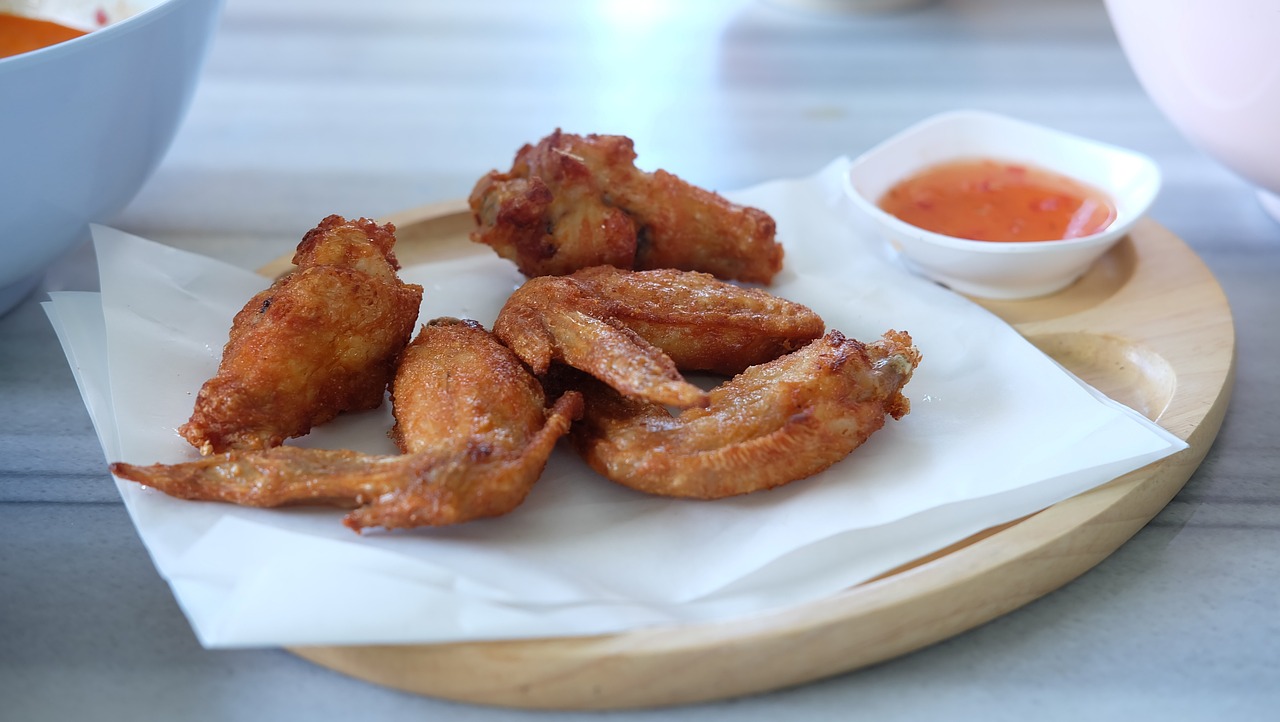
Your furry friend will happily munch on a KFC drumstick if given the opportunity. It’s hard to resist such a tasty morsel! However, indulgent human foods that are rich, fatty, or high in salt—such as fried items, butter, and gravy—can lead to a painful and potentially serious condition known as pancreatitis in French Bulldogs.
Cooked Bones
Although raw, meaty bones can provide a safe and natural source of nutrients for certain dogs, cooked bones become fragile and are likely to splinter. If these fragments are ingested, they can lead to blockages, cuts, or tears in a French Bulldog’s digestive system.
Tips for Feeding French Bulldogs People Foods Safely
As long as you know what French Bulldogs can eat safely, incorporating suitable human foods into your French Bulldog’s diet in moderation can be a fun way to provide tasty and nutritious supplements.
It’s important to introduce any new human treats carefully. Each dog has specific dietary requirements and sensitivities, so you’ll need to observe how your Frenchie reacts. If you’re uncertain, follow our guidelines:
Start Slowly
When introducing new French Bulldog recipes, begin with a small amount and watch carefully for any signs of digestive issues. Some dogs might be sensitive or allergic to specific ingredients.
Watch the Portions
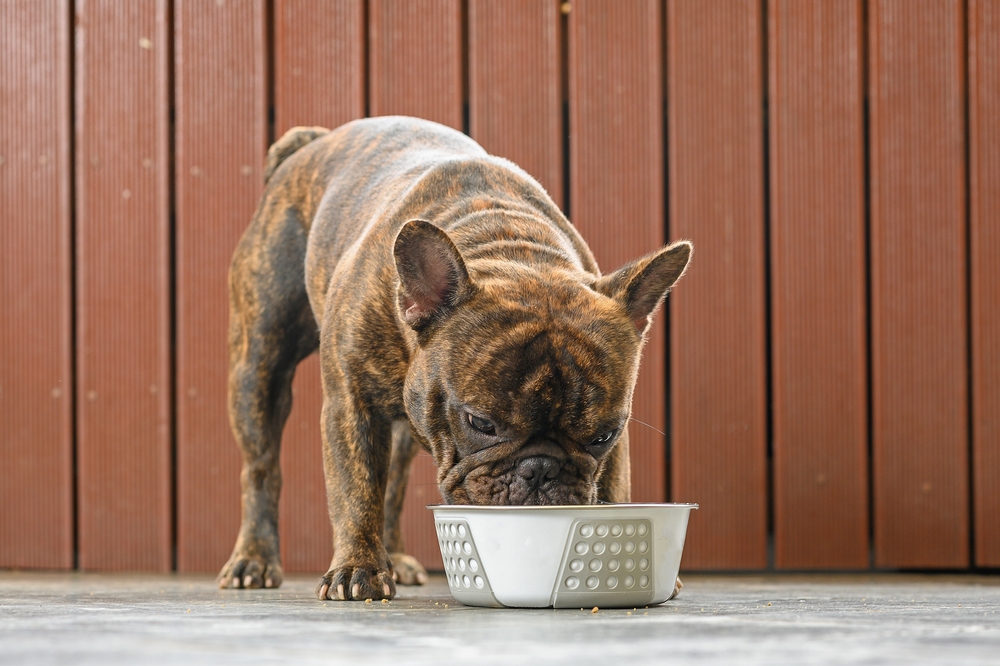
Even for healthy dogs, human food should only constitute a tiny portion of your Frenchie’s diet. Limit it to one or two tablespoons as an occasional treat instead of allowing them to eat from the table regularly.
Prepare Safely
Any human food you give to your French Bulldog should be simple, without seasoning, and made without added fats, oils, sugars, or salt. The ideal options are cooked, lean meats and steamed, unseasoned vegetables.
Beware of Choking Hazards
Choking risks are a major concern for dog owners. To keep your dog safe, make sure to slice any solid, hard, or stringy foods into small, manageable pieces that are easy to chew. Also, remember to take out pits, seeds, rinds, and bones!
Wrapping Up
You now have the answer to the timeless question, “What Can French Bulldogs Eat?“ Ultimately, feeding your French Bulldog is all about moderation and understanding what’s safe for them. While those pleading puppy eyes might tempt you to share your food, it’s important to be cautious. Offer only small, occasional treats of plain, dog-safe foods like cooked chicken, and avoid anything from the list of harmful items—their sensitive stomachs can’t handle those! Keep this guide handy so you and your Frenchie can enjoy a safe snack together!

As an experienced dog foster and canine advocate, I have a special place in my heart for French Bulldogs. Their charming personalities and unique needs sparked my interest, leading me to specialize in Frenchie care. I’ve fostered over 200 Frenchies over the year, gaining deep insights into their dietary requirements and health concerns. This expertise drives my contributions to bestfoodforfrenchbulldog.dog, where I share practical advice on nutrition, care, and enrichment for these lovable flat-faced pups.
My articles aim to educate Frenchie owners on optimal feeding practices and health management. When not writing or fostering, I’m often cuddling with my own Frenchie, Biscuit, my inspiration for helping others care for this delightful breed.
